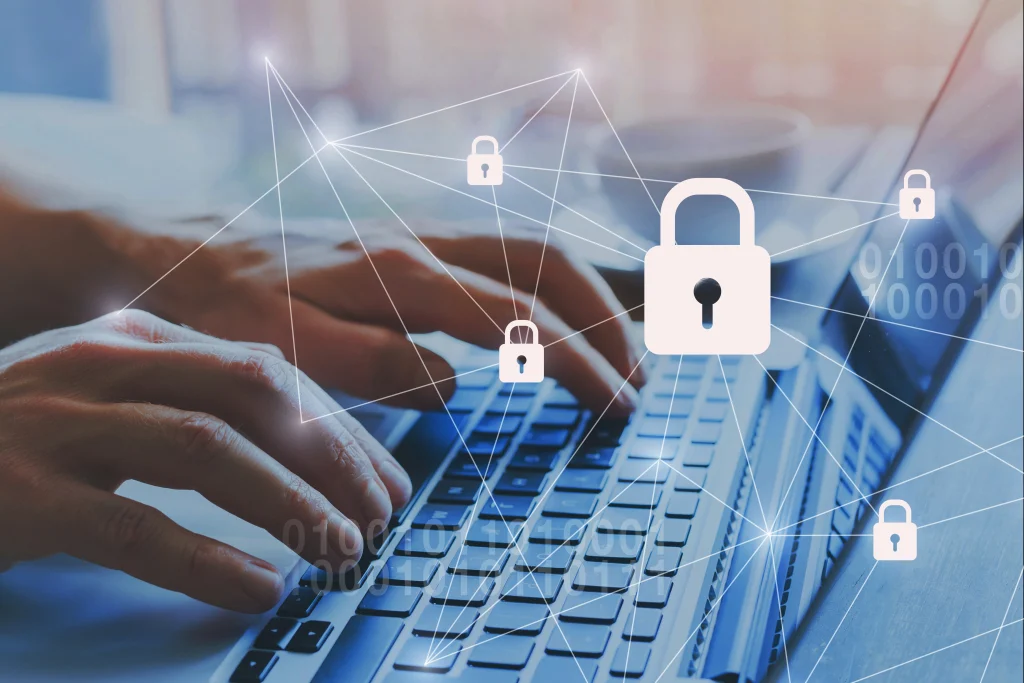In today’s rapidly advancing digital world, cybersecurity has become a top priority for businesses, individuals, and governments. Pakistan, with its growing reliance on technology, has witnessed a significant rise in cybersecurity threats. These threats pose serious risks to sensitive data, financial assets, and even national security. Understanding these threats and implementing effective solutions to combat them is crucial for safeguarding Pakistan’s digital future.
Understanding Cybersecurity Threats in Pakistan
Pakistan’s digital environment is expanding, with more individuals and businesses embracing online platforms for communication, commerce, and social interaction. However, this increasing connectivity also brings an uptick in cyber threats. Some of the most common and significant cybersecurity threats faced by Pakistan include:
Phishing Attacks
Phishing attacks involve cybercriminals posing as legitimate entities, such as banks or government bodies, to trick individuals into disclosing sensitive information. Cybercriminals often launch these attacks through emails, text messages, or fraudulent websites that appear authentic but aim to steal personal data, login credentials, or financial information.
Malware and Ransomware
Malware and ransomware are harmful software programs that infect computers and networks. Malware can steal data, corrupt files, or damage systems, while ransomware encrypts files and demands payment for their release. These types of attacks are increasingly common in Pakistan, particularly targeting businesses and government institutions.
Data Breaches
Data breaches occur when unauthorized individuals gain access to sensitive information, such as customer data, financial records, or confidential business information. These breaches can lead to identity theft, financial loss, and damage to an organization’s reputation. Pakistan’s growing e-commerce sector and digital services are prime targets for data breaches.
Denial-of-Service (DoS) Attacks
A Denial-of-Service (DoS) attack aims to disrupt the normal functioning of a website or online service by overwhelming it with traffic. This type of attack can result in service outages and significant downtime for businesses. Cybercriminals are increasingly using DoS attacks to target critical sectors in Pakistan, including banking and government services.
Insider Threats
Insider threats come from individuals within an organization who exploit their access to confidential data for malicious purposes. These threats can be intentional, such as an employee stealing sensitive information, or unintentional, such as an employee inadvertently causing a data breach by mishandling data.
Effective Solutions for Cybersecurity Protection in Pakistan
While cybersecurity threats are on the rise, there are effective solutions and strategies that individuals and businesses in Pakistan can implement to mitigate these risks and protect sensitive data. Here are some of the most effective measures:
Strong Password Management
One of the simplest yet most effective ways to protect against cyber threats is to use strong, unique passwords for each online account. Passwords should contain a mix of letters, numbers, and special characters, and be changed regularly. Implementing multi-factor authentication (MFA) adds an additional layer of security, making it harder for hackers to gain unauthorized access.
Regular Software Updates
Many cyber threats exploit vulnerabilities in outdated software. By regularly updating operating systems, antivirus software, and applications, users patch known security flaws and reduce the risk of malware infections or cyberattacks. Businesses should implement automated software updates to ensure their systems remain secure.
Employee Training and Awareness
Educating employees about cybersecurity best practices is essential for minimizing risks associated with insider threats and phishing attacks. Regular training sessions should cover topics such as identifying phishing emails, securing sensitive data, and reporting suspicious activities. Employees should also be aware of the organization’s cybersecurity policies and procedures.
Robust Firewalls and Anti-virus Protection
Firewalls and anti-virus software act as the first line of defense against cyberattacks. Businesses and individuals should invest in high-quality firewall solutions that monitor network traffic and block malicious activity. Anti-virus software helps detect and remove malware before it can cause significant damage to systems and data.
Data Encryption
Encrypting sensitive data ensures that even if hackers gain access to it, the information remains unreadable without the encryption key. This is especially crucial for financial transactions and personal data stored on digital platforms. Encrypting both stored data and data in transit adds an extra layer of protection.
Regular Data Backups
Regularly backing up data ensures that, in the event of a ransomware attack or system failure, vital information can be restored. Businesses should back up their data on both local servers and cloud storage to ensure redundancy and improve recovery time.
Implementing Access Controls
Access controls limit who can access sensitive information within an organization. By assigning different levels of access based on job roles, organizations can minimize the risk of unauthorized access to critical systems and data. Role-based access controls (RBAC) and the principle of least privilege (PoLP) are commonly used strategies to secure data.
Cybersecurity Audits and Penetration Testing
Conducting regular cybersecurity audits and penetration testing helps identify vulnerabilities in systems before cybercriminals can exploit them. These proactive measures allow businesses to assess their security posture and make necessary improvements.
Conclusion:
Cybersecurity threats are a growing concern for Pakistan, with individuals, businesses, and government institutions facing increasing risks in the digital space. However, by understanding the various threats and implementing effective solutions, such as strong password management, regular software updates, employee training, and robust security measures, Pakistan can better protect itself from cyberattacks. As the country continues to embrace digital transformation, strengthening cybersecurity will be crucial for ensuring a safe and secure online environment for all.
Do You Know
- How to protect data online? from any security threats or any cyber attacks, click here know some important facts.
- How to speed up your internet connection and solve internet issues? Click here and learn some interesting facts.
FAQs
What are the most common cybersecurity threats in Pakistan?
The most common cybersecurity threats in Pakistan include phishing attacks, malware and ransomware, data breaches, Denial-of-Service (DoS) attacks, and insider threats.
How can businesses protect themselves from cyberattacks?
Businesses can protect themselves by using strong passwords, regularly updating software, training employees on cybersecurity best practices, implementing firewalls and antivirus protection, encrypting data, and conducting regular cybersecurity audits.
Is it necessary to back up data regularly?
Yes, regular data backups are essential for ensuring that, in the event of a cyberattack or system failure, important information can be restored. Both local and cloud backups should be used to ensure data redundancy.
What role does employee training play in cybersecurity?
Employee training is critical in reducing the risk of insider threats and phishing attacks. Educating staff on how to identify suspicious activity and adhere to cybersecurity policies helps strengthen an organization’s security posture.
How often should software be updated to ensure cybersecurity?
Software should be updated regularly, as updates often contain security patches that fix vulnerabilities exploited by cybercriminals. Automated updates should be enabled to ensure timely installation of security fixes.




